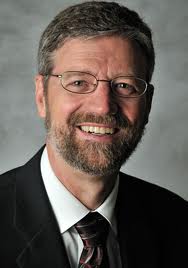By Ervin Stutzman
Every teacher of the law who has been instructed about the kingdom of God is like the owner of a house who brings out of his storeroom new treasures as well as old. – Jesus (Matthew 13:52)
Eternal truths will be neither true nor eternal unless they have fresh meaning for every new social situation. -Franklin D. Roosevelt
In mid-October, I spoke at Hesston Mennonite Church on a topic they had assigned to me. Since they were in a series called Stewarding God’s Kingdom, they asked me to speak on “Stewardship of a Spiritual Heritage.” The assignment goaded me into thinking about the ways that leaders are given the responsibility to carry on the spiritual legacy they have received.
Not that “heritage” and “legacy” are much appreciated as concepts these days. In our polarized political environment, “heritage” can imply an unbending commitment to conservative government. In our mad rush to technological innovation, “legacy” can imply irrelevant albatrosses that hang around our corporate necks. In spite of those associations, I hope to redeem these words in keeping with the rich meanings they have in scripture.
Reflecting on the spiritual heritage I have received, reminded me of my grandfather Noah’s axe. As a young boy, I worked for several days at his side, cleaning up brush in a shelterbelt of trees surrounding our house. I watched enthralled as he chopped up dead branches and tossed them onto a roaring fire. As we stood back to watch the flames consume the wood, he showed me his axe. “This axe,” he said with some pride, “once belonged to my grandfather. He passed it down to my father, who passed it down to me.”
He rubbed the handle with pride as he continued: “It’s gotten hard use. The handle had to be replaced twice. I think they replaced the head on it too. If you sharpen it often enough, it wears down to where you need a new one.”
Since that time, I’ve reflected on my grandfather’s words. “In what sense,” I’ve asked myself, “was my grandfather’s axe the same one that had once belonged to my great-great-grandfather?” Since it had a new head and a new handle, nothing from the original axe remained except perhaps the wedge, the piece which is most easily lost.
In the years since this interaction with my grandfather, I’ve pondered many questions about identification and change. I understand now that my grandfather saw himself as a steward of that axe, bestowed as a gift from his ancestor. I was a beneficiary of that gift as he used it to clean up our yard. But the benefit of that axe was far greater than the physical work it performed. It also evoked a rich legacy of stories and wisdom from my grandfather as he put it to work. He reflected on the things he’d learned from his grandfather, doubtlessly hoping they’d have some effect on me.
In a way, that axe is like our church; many changes have take place in our church over the last century. I’ve reflected on the ways that Christian faith, beliefs, values, and practices are passed from one generation to another, particularly in the Anabaptist tradition, which has treasured its spiritual legacy but shunned written creeds. Each new era introduces a need for adaptation and change. So I invite you to reflect with me: How can we as leaders serve as faithful stewards of a spiritual heritage, passing on the rich legacy of gifts we have received from God through the Mennonite Church? I intend to share some perspective on that question over the next few months, and welcome you to share yours as well.


